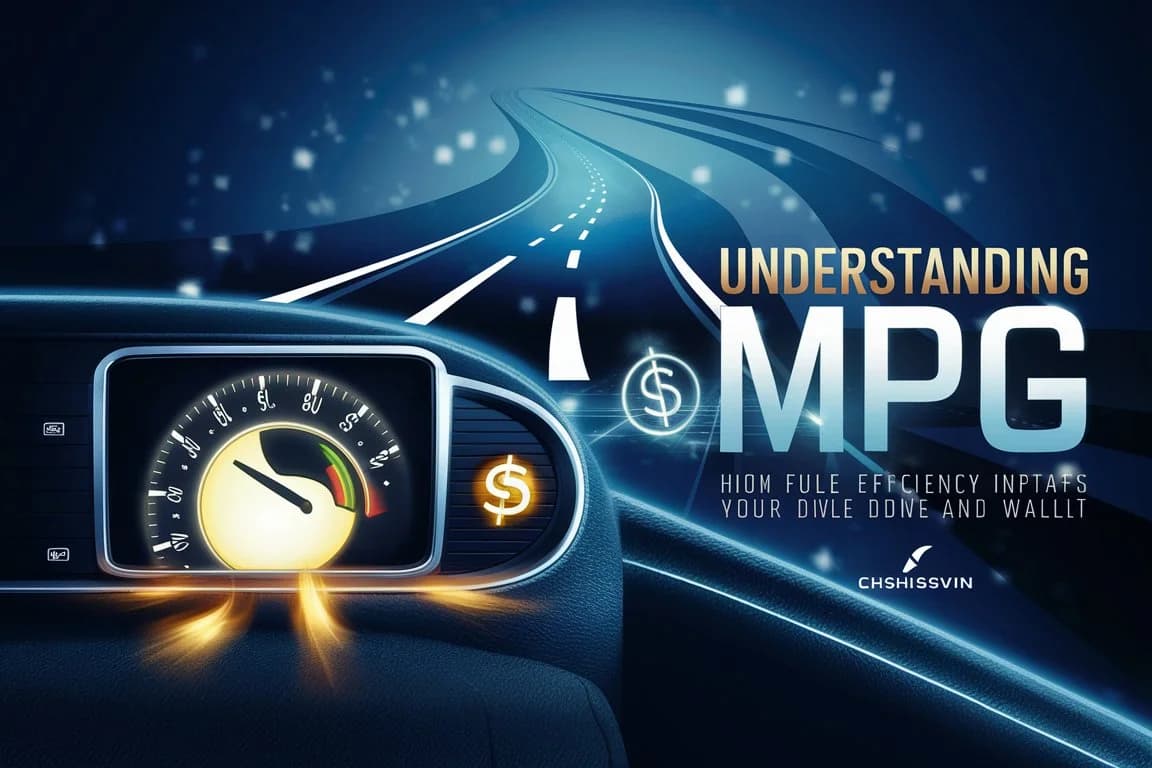Disadvantages of Selling a Car with Mileage Discrepancy
Learn about the disadvantages of selling a car with mileage discrepancy, why it matters, and how to address the issue effectively.
Introduction to Mileage Discrepancy
Selling a car with a mileage discrepancy can present significant challenges, impacting its resale value, buyer trust, and even legal standing. In this article, we'll explore the key disadvantages, how to address them, and why transparency is crucial in the automotive market.
What is a Mileage Discrepancy?
A mileage discrepancy occurs when the mileage displayed on a car's odometer does not match its actual usage. This inconsistency can arise from odometer tampering, faulty repairs, or errors in recording mileage during service history updates.
Common causes of mileage discrepancies include:
- Odometer tampering to artificially lower mileage.
- Faulty odometer readings due to technical issues.
- Misreporting mileage during service updates.
Can You Sell a Car with a Mileage Discrepancy?
Yes, you can sell a car with a mileage discrepancy, but it comes with significant disadvantages. These include reduced resale value, a limited pool of interested buyers, and potential legal repercussions if the discrepancy is not disclosed. Transparency is key to ensuring a fair transaction.
For buyers, trust is paramount. Addressing this issue before listing your car can help maintain credibility and streamline the sales process.
Disadvantages of Selling a Car with Mileage Discrepancy
Here are the key downsides to selling a car with a mileage discrepancy:
- Lower Resale Value: Buyers may undervalue the car, suspecting hidden issues.
- Reduced Buyer Interest: Fewer buyers will trust a car with inconsistent mileage records.
- Legal Risks: Failing to disclose the discrepancy can lead to lawsuits or penalties.
- Challenges in Financing: Some buyers may struggle to secure loans for cars with mileage issues.
How to Fix a Mileage Discrepancy
If you're dealing with a mileage discrepancy, here are steps to address it:
- Identify the Cause: Investigate if the discrepancy stems from tampering, repairs, or recording errors.
- Contact Professionals: Consult a trusted mechanic or dealership to verify the issue.
- Update Records: Correct mileage errors in service records and obtain documentation to support the change.
- Disclose the Discrepancy: Be upfront with potential buyers about the issue to maintain transparency.
Legal Implications of Mileage Discrepancies
In many regions, selling a car with a concealed mileage discrepancy is illegal. Sellers may face fines, lawsuits, or even criminal charges if the odometer is found to be tampered with. It’s critical to comply with local regulations and provide accurate information to avoid legal troubles.
Learn more about legal obligations for mileage reporting on authoritative sites like the National Highway Traffic Safety Administration (NHTSA).
Table: Key Factors Impacted by Mileage Discrepancy
The following table summarizes how a mileage discrepancy can affect various aspects of a car sale:
| Factor | Impact | Resolution |
|---|---|---|
| Resale Value | Significantly lower | Disclose and adjust pricing |
| Buyer Trust | Reduced | Provide transparency and documentation |
| Legal Risks | High | Comply with local laws |
| Marketability | Limited | Fix the discrepancy or target niche buyers |
How Mileage Discrepancy Impacts Insurance
A mileage discrepancy can have a significant impact on your car insurance policy. Insurance companies rely on accurate mileage to assess risk and calculate premiums. If the discrepancy is discovered, it could lead to policy cancellations or denied claims.
Key ways mileage discrepancies affect insurance include:
- Inaccurate Premiums: Insurance rates may be higher or lower than they should be, leading to adjustments or penalties.
- Claim Denials: If a mileage discrepancy is uncovered during a claim investigation, it may be grounds for denial.
- Legal Repercussions: Falsifying mileage for insurance purposes can result in fines or criminal charges.
Preventing Mileage Discrepancies in Used Cars
When purchasing a used car, taking steps to prevent mileage discrepancies is essential to avoid future complications. Buyers should ensure that all mileage information is accurate and supported by documentation.
Here are proactive steps to prevent mileage discrepancies:
- Request Maintenance Records: Review service history to ensure mileage readings are consistent.
- Use a VIN Lookup Tool: Tools like the VIN Decoder can provide a car’s detailed history, including mileage reports.
- Inspect the Odometer: Check for signs of tampering, such as uneven digits or scratches.
- Get a Professional Inspection: Have a trusted mechanic verify the odometer reading and assess the car's overall condition.
Case Study: A Real-World Example of Mileage Discrepancy
In 2020, a used car buyer discovered a significant mileage discrepancy in the vehicle they purchased. The odometer showed 45,000 miles, but a VIN check revealed the car had actually traveled over 90,000 miles. This revelation led to a lawsuit against the seller, who was found to have tampered with the odometer to inflate the car's value.
This case highlights the risks for both buyers and sellers:
- For Buyers: Financial losses due to overpaying for a misrepresented vehicle.
- For Sellers: Legal repercussions, including fines and damaged reputation.
Transparency and thorough documentation can prevent such issues and foster trust in car transactions.
Table: Comparison of Solutions to Mileage Discrepancies
The following table compares different methods for addressing mileage discrepancies:
| Solution | Effectiveness | Cost | Implementation |
|---|---|---|---|
| Correcting Records | High | Low | Contact service providers to update mileage |
| Odometer Replacement | Moderate | Medium | Requires professional installation and calibration |
| Legal Disclosure | High | Low | Include details in sales documentation |
| VIN History Checks | High | Low | Run a VIN check to validate mileage |
Risks of Ignoring a Mileage Discrepancy
Ignoring a mileage discrepancy can lead to severe consequences for both car owners and buyers. Here's why addressing the issue is critical:
- Legal Penalties: Failing to disclose a discrepancy could result in fines or criminal charges.
- Reputation Damage: Sellers may lose credibility in the market.
- Financial Loss: Buyers may overpay or face repair costs related to undisclosed wear and tear.
By taking action early, you can avoid these risks and ensure a smoother transaction process.
Our Services
Window Sticker
Print window sticker for your vehicle
VIN Decoder
Decode any vehicle manufacturer
Classic VIN Lookup
Decode VINs for classic and vintage vehicles
License Plate Lookup
Search license plate information
VIN Check
Decode any vehicle in US states
Build Sheet by VIN
Get detailed build sheet for your vehicle
Dealers
Unlimited vehicle history reports
Paint Code by VIN
Find your vehicle's exact paint color code
VIN Explorer
Explore detailed vehicle information by VIN
Warranty Check
Check warranty information by VIN
Vehicle Recalls
Understanding Vehicle Recalls: A Complete Guide

Ethan J. Caldwell
Ethan James Caldwell is a graduate of George Washington University (GW). Born and raised in Washington, Ethan has had a lifelong passion for cars, motorcycles, and all things automotive. From a young age, he was captivated by the mechanics, design, and culture surrounding vehicles, which eventually inspired his career. Ethan currently drives a silver 2005 Honda Accord, a testament to his appreciation for reliable and timeless vehicles.
Frequently Asked Questions
A mileage discrepancy occurs when the odometer reading does not match the actual distance traveled by the car. It can be caused by tampering, faulty odometers, or record errors.
Yes, a mileage discrepancy can often be resolved by identifying the cause, updating service records, and consulting professionals for corrections.
A mileage discrepancy can significantly reduce the resale value as buyers may distrust the car's condition and history.
Selling a car with a mileage discrepancy without disclosure can be illegal in many regions. Always comply with local laws to avoid legal consequences.
You can verify a car's mileage history using tools like the VIN Decoder or Window Sticker Lookup.
Our Blog Articles
Discover insights about vehicle history, maintenance, and buying guides

Carfax Alternatives for Vehicle History Reports: Your Best Options
Explore the best Carfax alternatives for vehicle history reports. Get detailed reports on accidents, ownership, and more. Find the right choice for you.

Understanding MPG (Miles Per Gallon) in Cars: A Complete Guide
Learn what MPG means, how it's calculated, and how to improve your car's fuel efficiency. Get the most out of your vehicle's MPG with ChassisVIN.

Explanation of Black Book Car Value: Your Guide to Vehicle Valuation
Understand Black Book car values. Learn how they work, who uses them, and how they compare to other resources. Get the info you need for informed decisions.
